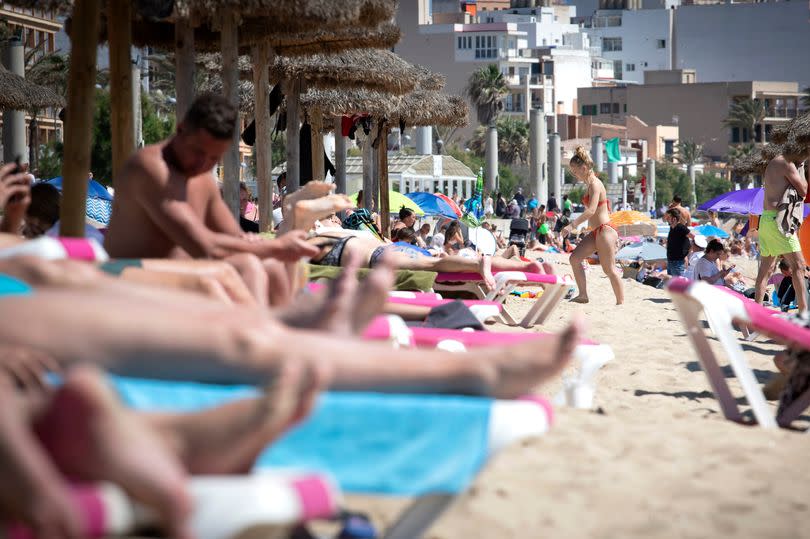GP's hack on beating travel sickness as Brits head on holiday

An estimated one in three people experience motion sickness at some point in their lives and as Brits across the country set off for their summer holidays, a GP has shared his crucial advice for keeping travel sickness at bay.
Dr Bhavini Shah, a GP at Lloyds Pharmacy Online Doctor, has explained the causes of travel sickness and how to alleviate the symptoms – including what to do if travel is quite literally the holiday, for those setting sail on a cruise. Thankfully, there are many remedies and practices available to prevent nausea, ensuring you can relax and fully enjoy the long-awaited holiday.
READ MORE: UK tourists bringing back disease which can kill one in 10 as Foreign Office issues alert
What causes travel sickness?
Dr Bhavini says: “Travel sickness can most commonly be put down to motion sickness. The repeated movement of a car, train, plane or boat can often result in feeling nauseous and dizzy, as well as being sick.
“You may also experience headaches, feel cold or notice you have pale skin.
“Motion sickness is caused by mixed signals in the brain as the inner ear (responsible for monitoring your balance) detects movement while your eyes perceive that you are still. This can be common when travelling on a large ship as you can’t see the same rising and falling that your inner ear feels.”
Are there any techniques or exercises that may alleviate symptoms during travel?
Saga Cruises sought out the GPs advice specifically for those setting sail as cruise season begins. Dr Bhavini explained: “There are a few easy ways to reduce motion sickness when travelling. If you’re on a large cruise ship, you can reduce the amount of motion you feel by spending more leisure time in the centre of the ship away from windows during the journey.
“You can also take frequent walks so that your eyes can detect the same motion as your inner ear. Taking a walk on the deck is also a good opportunity to get fresh air, which can also help reduce your motion sickness. Looking out at a fixed point over the horizon can also be beneficial, so long as you aren’t focusing on moving objects, such as waves.”

What can prevent or treat travel sickness?
Dr Bhavini says: “Ginger is commonly used as a home remedy for travel sickness as it can help reduce nausea. If you suffer from travel sickness, it could be a good idea to purchase ginger tablets for your trip, or just enjoy ginger biscuits or ginger tea.
“Alcohol should definitely be avoided as it will exacerbate any dizzy or nauseous feelings. Instead, take small sips of cold water to calm your stomach.”
When asked what activities should be avoided during travel, Dr Bhavini says, “Avoid reading or watching movies if you feel motion sickness settle in. Instead, close your eyes and listen to music or an audiobook. Having your eyes shut stops ‘positional’ signals from your eyes and reduces confusion in the brain. Sleeping can also help with this.”
Are there any specific medications that are more suitable for certain age groups or medical conditions?
Dr Bhavini advises, “Travel sickness tablets can help alleviate common symptoms for many people. You’ll be able to find them at most pharmacies or you can buy them online. Pharmacists will be able to recommend the best treatment for you or your child.
“In a pinch, antihistamines can also be used to help prevent motion sickness, however they may be less effective than travel sickness tablets. Some antihistamines can cause drowsiness, which may come in handy to help mellow irritable children on a trip.
“Always consult your doctor before taking travel sickness pills if you are pregnant, breastfeeding, or have other medical conditions.”

 Yahoo News
Yahoo News 